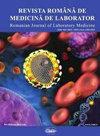丁香、牛至、百里香、桉树和茶树精油对大肠杆菌和肺炎克雷伯菌的抑菌活性
IF 0.5
4区 医学
Q4 MEDICINE, RESEARCH & EXPERIMENTAL
引用次数: 1
摘要
摘要背景:鉴于尿路感染复发率高,且对多种抗生素耐药的细菌越来越多,本研究旨在评价丁香、牛至、百里香、桉树、茶树精油(EOs)对尿路感染(UTI)患者中32株大肠埃希菌和28株肺炎克雷伯菌的抑菌性能。方法:采用琼脂盘扩散法测定分离菌株对精油的敏感性,测定最小抑菌浓度(MIC)和最小杀菌浓度(MBC)。结果:我们的研究结果表明,挥发性酚类化合物(如牛至叶精油中的香芹酚,百里香精油中的百里酚,丁香精油中的丁香酚)比非芳香化合物(如桉树精油中的桉油和茶树精油中的萜烯衍生物)更有效地抗菌。结论:牛至精油对大肠杆菌和肺炎克雷伯菌的抑菌效果最好,百里香次之。本文章由计算机程序翻译,如有差异,请以英文原文为准。
Antibacterial Activity of Clove, Oregano, Thyme, Eucalyptus, and Tea Tree Essential Oils against Escherichia coli and Klebsiella pneumoniae strains
Abstract Background: In view of the high recurrence rate of urinary tract infections and the increasing number of germs resistant to multiple antibiotics, the aim of the present study was to evaluate the antibacterial properties of clove, oregano, thyme, eucalyptus, tea tree essential oils (EOs) against 32 isolates of Escherichia coli and 28 isolates of Klebsiella pneumoniae from patients with urinary tract infections (UTI). Methods: The agar disk diffusion method was used to assess the susceptibility of these isolates to essential oils and the minimal inhibitory concentration (MIC), and the minimal bactericidal concentration (MBC) were determined. Results: Our results suggest that volatile phenols (such as carvacrol in oregano EO, thymol in thyme EO, and eugenol in clove EO) are more efficacious as antibacterial than non-aromatic compounds (such as eucalyptol in eucalyptus EO and terpinene derivatives in tea tree EO). Conclusion : The oregano EO, followed by thyme appear to have the highest efficacy against Escherichia coli and Klebsiella pneumoniae isolates investigated.
求助全文
通过发布文献求助,成功后即可免费获取论文全文。
去求助
来源期刊

Revista Romana De Medicina De Laborator
MEDICINE, RESEARCH & EXPERIMENTAL-
CiteScore
0.31
自引率
20.00%
发文量
43
审稿时长
>12 weeks
期刊介绍:
The aim of the journal is to publish new information that would lead to a better understanding of biological mechanisms of production of human diseases, their prevention and diagnosis as early as possible and to monitor therapy and the development of the health of patients
 求助内容:
求助内容: 应助结果提醒方式:
应助结果提醒方式:


